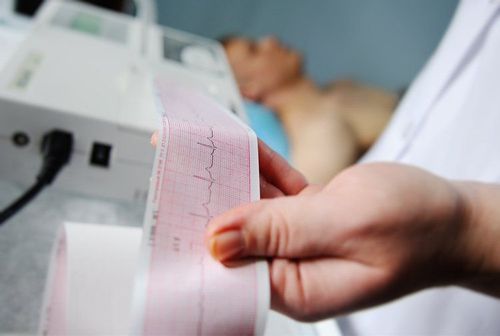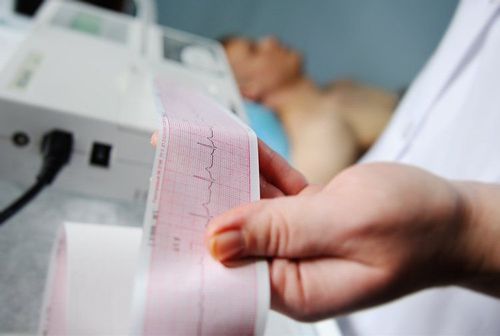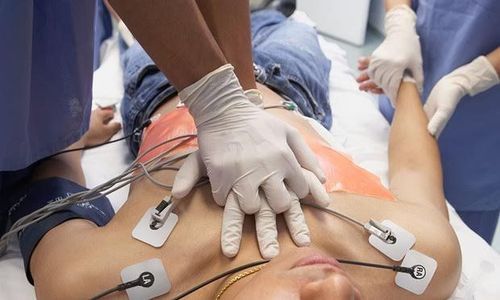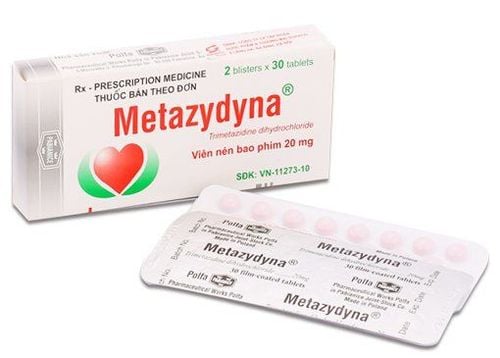This is an automatically translated article.
The article was professionally consulted with Specialist Doctor I Le Thanh An - Interventional Cardiologist - Department of Medical Examination & Internal Medicine - Vinmec Nha Trang International General Hospital.Anticoagulants are drugs used to prevent blood clots from forming in the blood vessels. Anticoagulants play an indispensable role in the treatment of a number of cardiovascular diseases.
1. Anticoagulants include which drugs?
Anticoagulants are drugs used to prevent blood clots from forming. Anticoagulants currently used in clinical practice include:
Heparin group: Unfractionated heparin, low molecular weight Heparin: enoxaparin, ardeparin, dalteparin, nadroparin,... Vitamin K group: Warfarin, Phenprocoumon, Acenocoumarol Factor Xa inhibitors: Rivaroxaban, Apixaban, Fondaparinux, Idraparinux Thrombin IIa inhibitors: Hirudin, Argatroban, Bivalirudin, Dabigatran
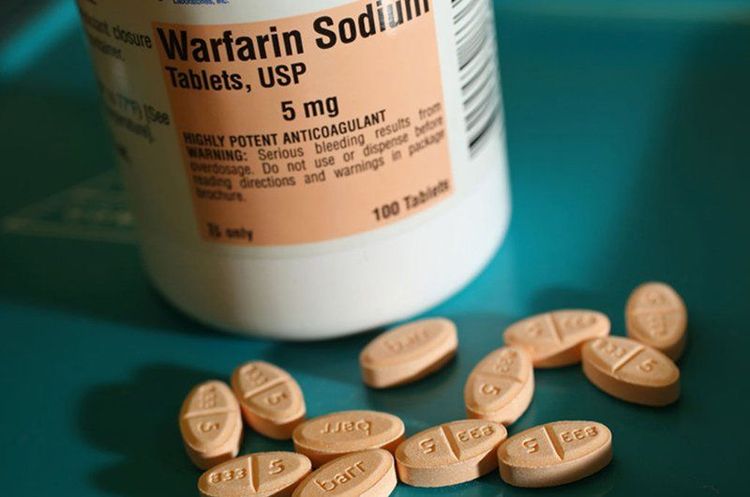
2.Using anticoagulants in cardiovascular patients
2.1. Heart valve disease Mitral stenosis (usually posterior rheumatic) is the main indication of long-term anticoagulation in Vietnam. Patients with mitral stenosis require anticoagulation with a vitamin K antagonist with an INR of 2-3 in the following cases:Atrial fibrillation (paroxysmal or new) Sinus rhythm, with: History of systemic embolism , or Left atrial thrombosis (detected on echocardiography), or left atrium >50 mm (or left atrial volume >60 mL/m2). The risk of thromboembolic events in patients with mitral regurgitation is lower than that of mitral stenosis. But patients with mitral regurgitation also need long-term treatment with vitamin K antagonists if there is atrial fibrillation, a history of thromboembolism.

After valve replacement surgery up to the first 3 months: For mechanical valves: adjust INR 2.5-3.5 For biological valves: adjust INR 2-3. After 3 months: For bioprosthetic valves without risk factors (no atrial fibrillation, left ventricular dysfunction, history of thromboembolism, hypercoagulable state), discontinue vitamin K antagonists and use Aspirin 75-100mg/day. For biological valves with risk factors: use Vitamin K antagonists indefinitely and adjust INR 2-3. For mechanical valves with no risk factors, use 2-half-disc valves or Medtronic-Hall valves: use vitamin K antagonists indefinitely and adjust INR 2-3. For mechanical valves with the remaining cases: use Vitamin K antagonists indefinitely and adjust INR 2.5-3.5.

2.3. Non-valvular atrial fibrillation The indication for anticoagulation in patients with nonvalvular atrial fibrillation depends on the risk of thromboembolic events. If the risk of thromboembolism is high, long-term anticoagulants should be used, if the risk is low, aspirin can be used.
2.4. Treatment of Deep Vein Thrombosis Anticoagulants are the mainstay of treatment for patients with Deep Vein Thrombosis (DVT). Anticoagulation is indicated for all patients with proximal DVT (iliac, femoral, popliteal veins) and in some cases of distal DVT (calf veins). The decision to use anticoagulation must weigh the benefits of antithrombotic therapy with the risk of bleeding for the individual patient.
How to use anticoagulation:
Initiation of anticoagulation (first 10 days): anticoagulation initiation refers to systemic anticoagulation given during the first few days (up to 10 days) after diagnosis of deep vein thrombosis (DVT). In most patients, anticoagulation should be initiated immediately because delaying treatment may increase the risk of life-threatening thromboembolism. Anticoagulant options: options include subcutaneous low molecular weight heparin (LMWH), subcutaneous fondaparinux, oral factor Xa inhibitor (rivaroxaban or apixaban), or unfractionated heparin (UFH). ). The decision about which to use is often based on the clinician's experience as well as bleeding risks, comorbidities, preferences, cost, and convenience. Vitamin K antagonists (Warfarin) cannot be used initially alone because of the slow onset of action.
Outpatients : for patients selected for outpatient therapy, we recommend: use of LMWH in addition to warfarin (dual therapy); pretreatment with LMWH followed by dabigatran or edoxaban (dual therapy); or anticoagulation with rivaroxaban or apixaban (monotherapy: i.e. no prior treatment with heparin required). The choice of an anticoagulant should be individualized and depend on bleeding risk, patient comorbidities, preference, cost, and convenience.
Long-term anticoagulants (10 days to 3 months): Long-term anticoagulant therapy is used for a finite period of time usually 3 to 6 months and up to 12 months in some cases (eg. : thrombectomy, a persistent but reversible risk factor). In some patients, long-term anticoagulation is chosen from the same class as initiating therapy (eg, LMWH, rivaroxaban, and apixaban), but in other cases, long-term and initial anticoagulants fall into the categories of different, so that switching from one anticoagulant to another is appropriate (eg, heparin to warfarin, heparin to edoxaban or dabigatran). Adequate anticoagulation should be ensured during the transitional periods and limited interruptions during the first trimester of long-term anticoagulation because this is the period with the highest risk of thromboembolic recurrence.
Choice of anticoagulation: long-term anticoagulation options are oral or subcutaneous. Oral anticoagulants including direct factor Xa inhibitors (rivaroxaban, apixaban, or edoxaban), thrombin inhibitors (dabigatran), and vitamin K antagonists (warfarin); Subcutaneous anticoagulants include LMWH and fondaparinux.
How long does anticoagulation treatment last? The optimal duration of anticoagulation is determined based on: presence or absence of precipitating events, risk factors for recurrence and bleeding, and individual patient preference and affordability. . Although there is agreement on the minimum length of time for which a patient with first-time DVT should be treated (three months), the optimal duration is unknown.
Indefinite use of anticoagulation: although there is consensus on the need to selectively use indefinite anticoagulation in patients with acute DVT, there is no single best approach. be agreed. Patients on indefinite anticoagulation should be considered and drug selection for this population discussed individually.
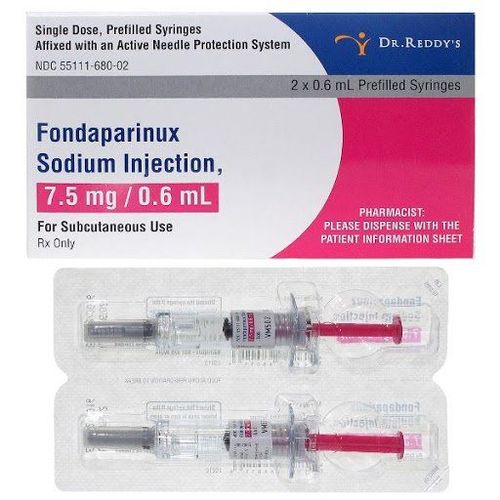
2.5. Acute Myocardial Infarction (AMI) is caused by the rupture of atherosclerotic plaque, causing intravascular thrombosis. Intravascular thrombosis impairs distal blood flow and can lead to ischemia or myocardial infarction. Intravascular coagulation is a dynamic process involving both clot formation and intrinsic fibrinolysis. The goal of antithrombotic therapy (a combination of anticoagulant and antiplatelet therapy) is to prevent clot expansion and re-formation in cases where the clot has undergone fibrinolysis by intrinsic mechanism, fibrinolytic therapy or mechanical measures.
Anticoagulants used in the management of acute myocardial infarction, including 3 groups:
Heparin group: including UFH and LMWH. Direct thrombin inhibitors: hirudin, bivalirudin, lepirudin. Indirect factor Xa inhibitors: fondaparinux. To protect heart health in general and detect early signs of myocardial infarction and stroke, customers can sign up for the Cardiovascular Screening Package - Basic Cardiovascular Examination of Vinmec International General Hospital. The examination package helps to detect cardiovascular problems at the earliest through tests and modern imaging methods. The package is for all ages, genders and is especially essential for people with risk factors for cardiovascular disease.
Please dial HOTLINE for more information or register for an appointment HERE. Download MyVinmec app to make appointments faster and to manage your bookings easily.





